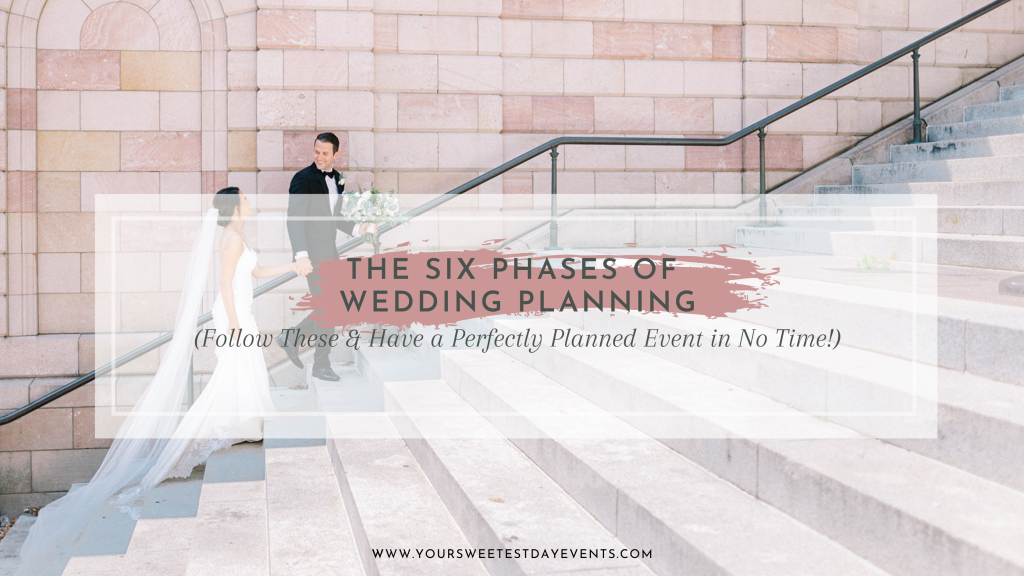
Planning a wedding can be an overwhelming experience, but with the right checklist, it becomes a joyful journey. Whether you’re a professional wedding planner or a bride-to-be taking the reins of your big day, this comprehensive guide To-do list for wedding planners is your go-to resource.
Initial Planning Phase

Set the Date and Budget: Before diving into the details, decide on the wedding date and a realistic budget. Consider seasons, significant dates, and financial constraints.
Create a Vision Board: Whether it’s a physical board or a digital one like Pinterest, gather ideas for themes, colors, and styles. This helps in visualizing the big day.
Draft the Guest List: Jot down a preliminary guest list. This will guide venue selection and budget allocation.
Select Venues: Research and visit potential ceremony and reception venues. Consider size, location, and ambiance. Secure your venues by booking them early.
Hire Key Vendors: Begin your search for crucial vendors: photographers, caterers, florists, and entertainers. Check out Top Wedding Photographers for some great options.
Mid-Planning Checklist
Wedding Attire: Start shopping for wedding dresses, suits, and attire for the bridal party. Remember, alterations can take time!
Send Save-the-Dates: Once your date and venue are locked in, send out save-the-date cards. For creative ideas, see Unique Save-the-Date Cards.
Menu Tasting and Catering: Decide on the menu. Schedule tastings with caterers and finalize the meal options, including drinks.
Book Hotel Blocks: If you’re expecting out-of-town guests, reserve blocks of hotel rooms. This is where a good relationship with local hotels comes in handy.
Plan the Honeymoon: Start thinking about your honeymoon. Whether it’s a tropical getaway or a cultural excursion, now is the time to plan.
Final Stretch

Finalize Guest List: Confirm the guest list and send out the official invitations. Include RSVP information and any necessary details about the venue.
Create a Seating Chart: Once RSVPs start coming in, create a seating chart. Tools like Seating Chart Creator can be very helpful.
Confirm with Vendors: Touch base with all your vendors to confirm details, times, and special requests.
Marriage License: Don’t forget the legalities. Apply for a marriage license within the required time frame.
Final Dress Fitting: Schedule the final fitting for your wedding attire to ensure everything is perfect.
The Big Day
Prepare an Emergency Kit: Assemble an emergency kit with items like safety pins, stain remover, and a sewing kit.
Enjoy Your Hard Work: Remember to enjoy the day! All the planning is meant to lead to a joyous celebration of love.
Post-Wedding Tasks: After the wedding, don’t forget to send thank you notes, review vendors, and settle any remaining payments.
Detailed Breakdown of the Wedding Planning Process

Setting the Date and Budget
- Research Costs: Understand the costs associated with different times of the year, days of the week, and venues.
- Flexibility: If possible, be flexible with your date for better deals on venues and vendors.
Creating a Vision Board
- Collect Inspirations: Use magazines, wedding blogs, and real wedding stories for inspiration. Websites like Wedding Inspirations can be a goldmine for ideas.
Drafting the Guest List
- Prioritize: Start with immediate family and close friends before moving to extended family and acquaintances.
Selecting Venues
- Visit in Person: Always visit the venues in person to get a true feel for the space.
- Read Reviews: Check websites like Venue Reviews for honest feedback from other couples.
Hiring Key Vendors
- Read Contracts Thoroughly: Understand cancellation policies, payment schedules, and what’s included in their services.
Wedding Attire Shopping
- Start Early: Give yourself plenty of time for fittings and alterations.
- Consider the Theme and Venue: Your attire should complement the overall style of the wedding.
Sending Save-the-Dates
- Go Digital: Consider eco-friendly digital save-the-dates.
- Include a Wedding Website: Provide a link to your wedding website for more details.
Menu Tasting and Catering
- Dietary Requirements: Make sure to include options for guests with dietary restrictions.
- Seasonal and Local: Opt for seasonal and locally sourced food for freshness and to support local businesses.
Booking Hotel Blocks
- Compare Options: Look for hotels with a range of price options to accommodate all guests.
- Ease of Transportation: Consider the proximity to the venue for the convenience of your guests.
Planning the Honeymoon
- Consider a Travel Agent: They can help find deals and plan the itinerary.
- Travel Insurance: Always a good idea, especially for international trips.
Finalizing the Guest List
- Use a Management Tool: Tools like Guest List Manager can simplify tracking RSVPs and meal preferences.
Creating a Seating Chart
- Be Thoughtful: Consider the relationships and dynamics of your guests when planning seating.
Confirming with Vendors
- Final Walk-Through: If possible, do a final walk-through at the venue with your key vendors.
Applying for a Marriage License
- Know the Laws: Marriage license requirements can vary by location, so it’s important to do your research.
Final Dress Fitting
- Accessorize: Bring your shoes, jewelry, and undergarments to see the complete look.
Preparing an Emergency Kit
- Delegate: Assign a bridesmaid or family member to keep the emergency kit on hand.
Enjoying Your Hard Work
- Stay Present: It’s easy to get caught up in the details, but remember to enjoy the moment.
Post-Wedding Tasks
- Review Vendors: Your feedback is invaluable for future couples and the vendors themselves.
Post-Wedding Reflections and Management

Managing Post-Wedding Tasks
- Gather Feedback: Ask close family and friends for their honest feedback about the wedding.
- Document Experiences: Keep a journal or a blog post about your wedding planning journey. This can be invaluable for future planners or couples.
Preserving Memories
- Photographs and Videos: Ensure you receive all your photographs and videos from the photographer and videographer.
- Album Creation: Consider creating a wedding album or a digital photo book. Websites like Photo Book Creations offer great tools for this.
Handling Leftover Items
- Donations: Consider donating leftover flowers, decor, or food to local charities.
- Sell or Repurpose: Some items can be sold or repurposed. Websites like Wedding Market can be useful for this.
Thank You Notes
- Timeliness: Aim to send out thank you notes within a few weeks of the wedding.
- Personalization: Personalized notes are much more meaningful. Mention specific gifts or moments shared.
Sharing Your Story
- Social Media: Share your favorite moments and photos on social media platforms.
- Wedding Blogs: Submit your wedding story to wedding blogs or magazines for future couples to draw inspiration from.
Future Planning
- Anniversary Planning: Start thinking about how you will celebrate your first anniversary.
- Continuing the Journey: Remember, the wedding is just the beginning of a lifelong journey.
Conclusion
As we wrap up this comprehensive to-do list for wedding planners, it’s important to remember that each wedding is unique. This checklist for a wedding is a guide to help you navigate the complex process of wedding planning, but it’s also flexible enough to be tailored to your specific needs and vision.
The key to a successful wedding lies in careful planning, organization, and remembering to enjoy the process. After all, this is a celebration of love, commitment, and the start of a new chapter in life. By following these steps, you can ensure that your wedding day is not only memorable but also a reflection of your personal style and love story.











